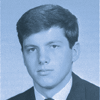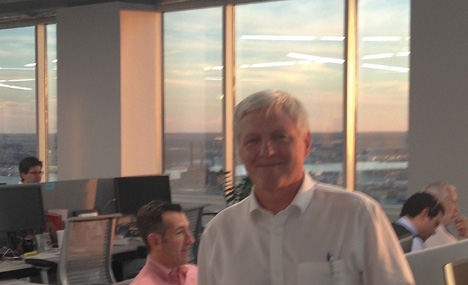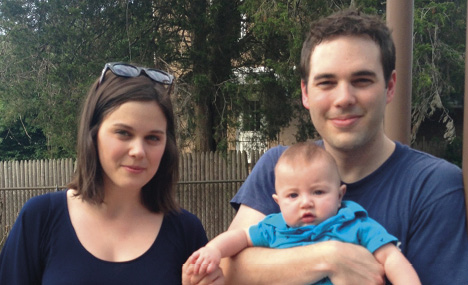Jim Amoss – 50th Reunion Essay
Jim Amoss
 2700 Esplanade Ave.
2700 Esplanade Ave.
New Orleans, LA 70119
jimamoss3@gmail.com
504-473-6656
Spouse(s): Nancy Monroe (1975 – )
Child(ren): Adam (1981); Sophie (1985).
Grandchild(ren): Luke (2014); Savannah (2016).
Education: Yale BA magna cum laude; Oxford University, Rhodes Scholarship (1969-70).
National Service: Conscientious objector, alternative service as an orderly at Boston City Hospital (1970-72).
Career: Journalist, beginning as a newspaper reporter. Was editor of my hometown paper, The Times-Picayune, for 25 years. We won four Pulitzer Prizes, the first in the paper’s 180-year history. We covered and helped bring New Orleans back to life after Hurricane Katrina. Retired in 2015.
Avocations: Piano, practiced on every beer-stained Steinway in every Yale dining hall; still at it. Skiing. Languages. Travel. Cooking.
College: Morse
I left Yale with a good academic record, a love of classical piano, a knack for languages, a passion for German lit, and a short-term path forward in the form of a Rhodes Scholarship.
In fact, I was a lost soul. It was dawning on me that I had no discernible calling, no idea what to do with my life after school. Instead of pursuing my course of study, the political writings of Thomas Mann, I largely wasted the scholarship brooding about the war in Vietnam. One bleak winter day at Oxford, I wrote an essay:
“I cannot be a party to the waging of war unless I become a hypocrite. I cannot serve my country in its Armed Forces unless I destroy my conscience.”
I sent those words to my draft board in New Orleans. To my surprise, they approved, requiring two years of “alternative service.” I chose to be an orderly at Boston City Hospital, pushing patients from ward to ward, from ward to morgue. In my spare time, I studied Russian and practiced piano on an upright that a fellow orderly and I liberated from an abandoned apartment in Roxbury.
Still without a plan, I lucked out. On a blind date, I met Nancy Monroe, a student at Yale Architecture School. Six years later we were married; six more and we had Adam, then Sophie. But we knew that first night that we were meant for each other. She steadied my moodiness, softened my self-righteous streak, loved me, even sans plans, and still does.
My Boston service completed, I returned to New Orleans with the architect. She found work at a firm. I painted houses, substitute taught, translated for German tourists and waited tables at Commander’s Palace, where I perfected my technique for flaming bananas Foster.
Still, I fretted about my calling. As a student, I had toyed with the notion of being a writer. I loved researching and unearthing hidden information, but the early reviews of my prose were not promising. At Yale, Prof. Ernest Lockridge had given my freshman English paper on the Canterbury Tales a grade of “50.” In the margins he had scrawled indignantly: “Clumsy sentence!” “Awkward!” “Huh??”
Nevertheless, I applied to be a reporter at my hometown newspaper and was hired.
My editor, a middle-aged, gap-toothed Mississippian, instantly sized up my cluelessness. Bill Rainey’s good-humored threat twanged across the newsroom: “Boy, I’m gonna whup you into shape.”
Which he did. As a devotee of Thomas Mann, I could produce reams of turgid sentences, the subordinate clauses strung together like giant spiderwebs. Rainey, a minimalist, whacked away at the weed-choked garden of my stories. From the first day, I loved my work. Eventually I caught on. I had found my calling. I retired after 25 years as editor of the Times-Picayune.
I’m still indulging my passions. At the moment, Chopin nocturnes, Italian language courses, grandkids.

Sophie, Adam and Luke

If the above is blank, no 50th reunion essay was submitted.
